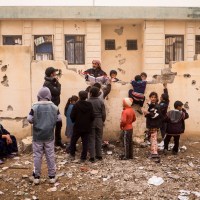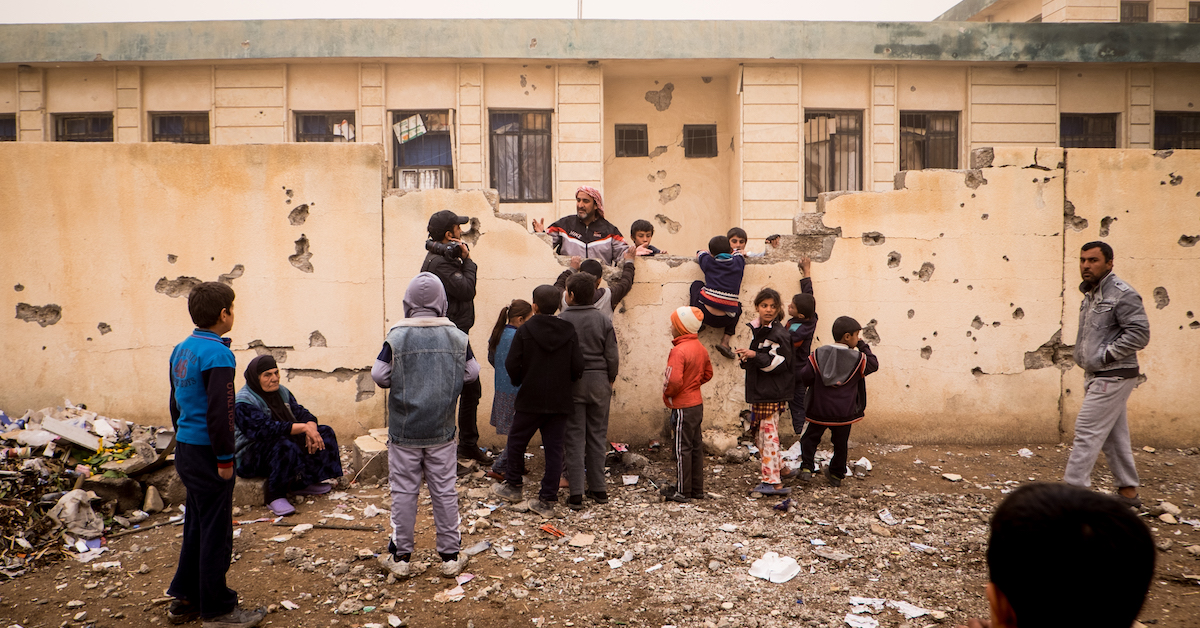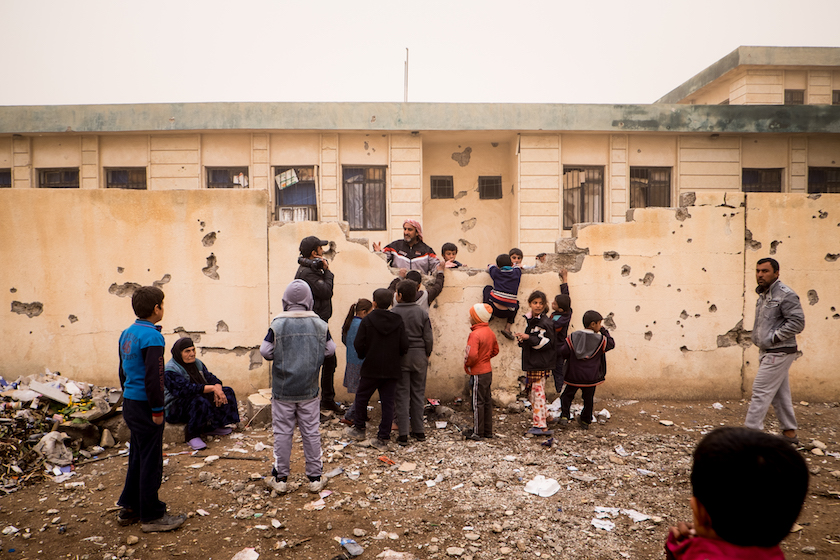
“I don’t care if mortars are falling all around us. We are getting these families food.”
That’s what we told the delivery team lead on our last trip to Mosul. After everything we’ve seen in Iraq and Syria over the past few years, there isn’t a lot that shocks us anymore.
But the living conditions of the families in this school, just a few miles from ISIS, did. I’d never seen anything like this, not after nearly six years of living and working in Iraq.

Dozens of families were crammed into a few small rooms. Winter cold had set in. At night it frosts inside the building where they live, a former school that was blown up by ISIS.
Imagine waking up on cold cement with a blanket or two and frost in your bedroom.
Someone had sledgehammered a hole in one corner of the room—their bathroom. A makeshift hole in the ground for hundreds of people.
“People just don’t know we’re here,” one of the fathers named Abed told me. “They bring aid, but we don’t have representation or any clout…we get nothing.”
We stood looking at each other. He seemed to be trying to read my thoughts, and I’m glad he couldn’t. This wasn’t the plan. We had a system, created and in place for a reason. If we abandon protocols every time we encounter starving people, we’ll never—
“Come with me,” I said.
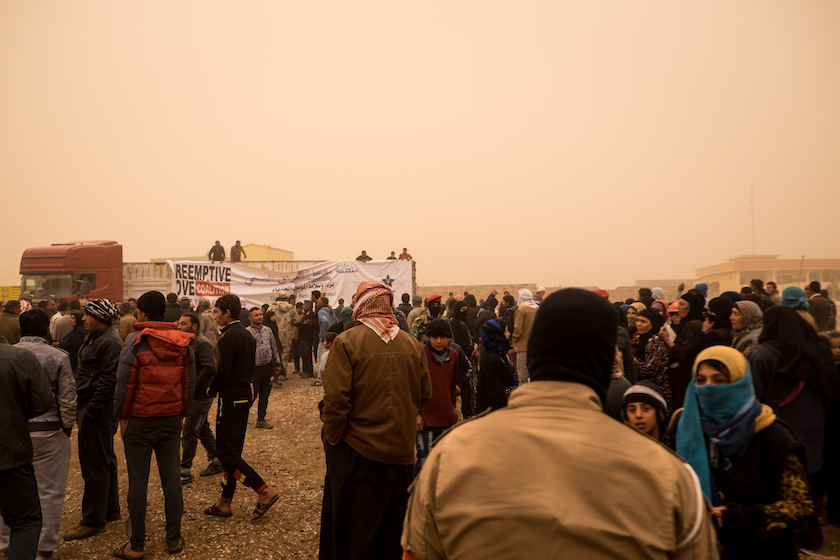
I led this man, at least twice my age, by his elbow and we walked toward the trucks. Crowds in the hundreds swarmed around, and we had to push to get through.
“Get BACK, go BACK!” an armed guard shouted at Abed.
Our security was on edge, and rightfully so. Hollow-eyed masses inched closer and closer to the truck, barely noticing the warning shots fired over their heads. Hunger is a powerful thing.

We explained Abed was getting food now, and they let us through. We arrived at the trucks just as they were packing up to leave.
“This place is becoming too dangerous. We have to go right now!” our delivery lead shouted to me over the crowd.
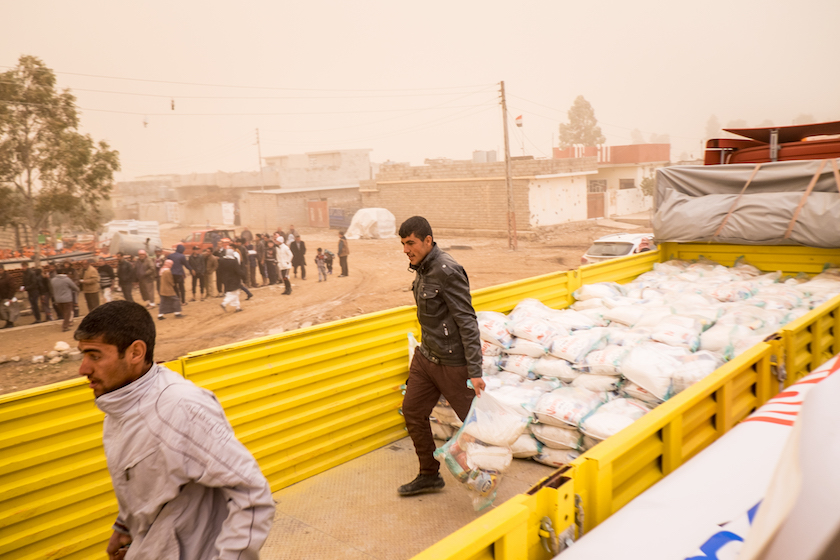
We managed to deliver food to thousands of people that day, but we had to leave Abed’s school before we could get him food. Just as we were about to drive away, he held out empty, open palms and gave the most hopeless look I’ve ever seen.
Our car began pulling away.
“…wait!”
I got out of the truck and grabbed Abed’s arm again.
“Get in.”
Rather than getting into our SUV, Abed climbed up the side of the semi truck and sat with the remaining food. I got out and climbed up to join him. We drove to the outskirts of the town, pulled over, and gave Abed 36 packs of food—a month’s supply for all thirty six families living in the blown-up school building.
We then hired a taxi driver, someone Abed knew and trusted, to bring the food back to the school. We instructed the driver to bring the food in via the back door, just in case anyone nearby might be tempted to steal it from the families living there.
We shook hands, and he gave a traditional blessing in Arabic: “God bless you, and may God show mercy to your father.”
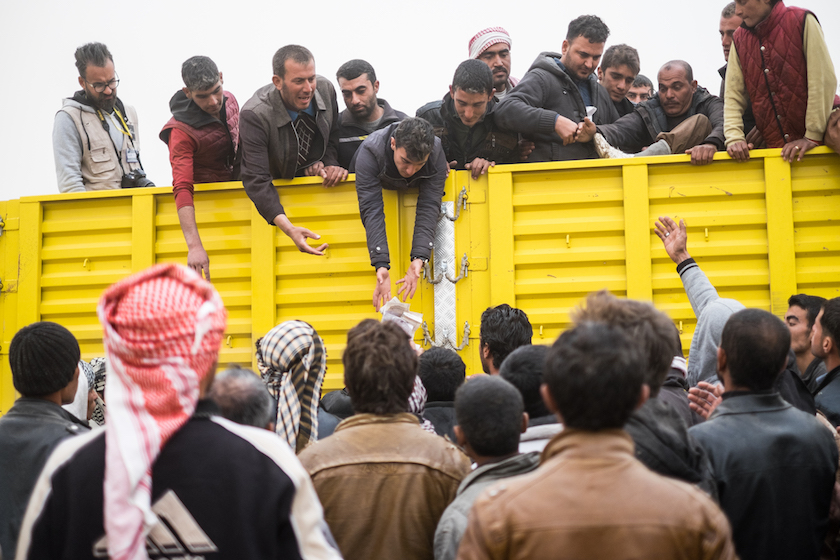
We started the day according to plan, delivering food to people unable to reach it, near the front lines. But then ISIS began targeting our trucks with mortar fire, and we were forced to fall back to another location.
It’s tempting to see this as a lost opportunity, or maybe just a lesser plan B.
But I think it was Providence, because we found the people who needed food most, and that is exactly who we are looking for.
Bring food to those who need it most in places like Aleppo and Mosul. Give today.

